Concussions are common in children, teens and seniors, often from sports, falls or sudden impact. Some are mild, but a careful systems review and follow-up are important for safe recovery.
Types of Concussions:
- Mild – Symptoms under 15 min, no loss of consciousness
- Moderate – Symptoms longer than 15 minutes no loss of consciousness
- Severe: Brief loss of consciousness
It is imprint to note that children may present with different symptom patterns such as headache, dizziness, trouble focusing, irritability, or difficulties sleeping and fatigue.
At times, concussions can occur without a direct head hit. It can take place as the result of a whiplash when the head and neck move back and forth. The jolt associated with a whiplash can exacerbate concussion symptoms.
At Westchester Physical and Occupational Therapy, PLLC, we provide specialized differential rehab diagnoses, combined treatment approaches for PT and OT, as well as implement recovery plans to help children to safely return to school, sports, community and daily life.
Team-Based Concussion Therapy
Restoring balance, vision, and function
Progressive Exercise Therapy (PT) – Guided, sub-symptom aerobic activity to restore brain blood flow and build safe tolerance.
Cervical & Postural Treatment (PT) – Manual therapy and posture retraining to reduce neck-related headaches, dizziness, and fatigue.
Vestibular & Oculomotor Rehab (PT) – Targeted balance, gaze stability, and visual-motor retraining exercises.
Sensory Integration & Regulation (PT and OT) – Strategies to manage overstimulation, improve self-regulation, and support re-entry into busy environments.
Cognitive & Academic Support (OT) – Return-to-learn planning, focus/attention training, and strategies for classroom and homework success.
Functional Skills Training (OT) – OT-guided interventions for daily routines, fine-motor control, and executive functioning.
Patient & Family Education (PT and OT) – Practical guidance for pacing, rest-activity balance, and managing environments at home, school, and sport.
Collaborative Care – Coordination with physicians, neuropsychologists, vision therapy, and educators for comprehensive recovery.
Why Choose Us
C Cognition: Monitor thinking, memory, and attention
O Oculomotor: Screen vision, tracking, and convergence
N Neck: Address cervical strength, posture, and mobility
C Coordination: Restore motor planning and balance
U Unusual emotions: Irritability, sadness, mood swings
S Sensory Systems: Focus on vestibular, proprioceptive, and visual input
S Sleep Disruption: Regulate rest and recovery patterns
I Integration: Support safe return to school, play, and daily routines
O Observation: Track red flags and subtle changes over time
N Neuroplasticity: Evidence based rehab to retrain and heal the brain





newsletter signup